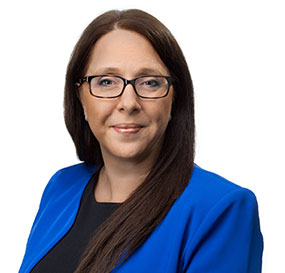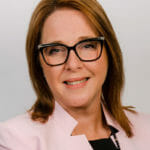
The coronavirus pandemic in early 2020 brought into the open some deep-seated questions about aging in America, and how seniors are regarded: Are they somehow less useful than those who are younger? Are their lives somehow less valuable?
Louise Aronson, a geriatrician and professor of medicine at the University of California, San Francisco, wrote in The Atlantic that as the disease took hold, no special protocols were put in place for the elderly, even though they were most vulnerable to it. It led her to wonder if it was evidence of ageism, which in her mind rears its ugly head in various aspects of healthcare.
Couple that with a New York Times report noting that the onset of the virus — dubbed the “Boomer remover,” by some young people — had also left many doctors with a grim choice of how to allocate their time, care and resources. There were guidelines to follow and criteria to consider, one of them being patients’ ages. Again, it leads to uncomfortable questions.
Certainly ageism in the U.S. — i.e., the stereotyping and marginalization of seniors — is a topic demanding to be addressed, especially as the population grows older and older. By 2034, there will be more Americans over the age of 65 than under 18, part of a worldwide pattern that will see one in five people around the globe live to 60 or older by 2050.
Ageism is something evidenced in speech and attitudes. It is evidenced in thoughts, words and deeds. Some of it emanates from the advertising wizards on Madison Avenue, and some of it even comes from seniors themselves. (Witness how often those of a certain age invoke the phrase “senior moment.”) It is, in the words of author/activist Ashton Applewhite, “the last acceptable prejudice.” But while strides have been made in the fights against racism, sexism and homophobia, ageism persists.
Understand that it cuts in all directions — i.e., it can be applied to all age groups. Who among us has not said that a child is “too young” to perform a certain task? Yet its most pernicious form is that which is applied to the 65-and-over set. As Applewhite points out, it is a mechanism often used to cut work lives short, and can even impact lives in general.
Bill Thomas, founder of ChangingAging.org, cut to the heart of the matter on a podcast with fellow geriatrician Leslie Kernisan:
“We have this strange paradox going in 21st Century America. We’ve built a society that has done an extraordinary job getting people into old age — we do it better than almost any society in history — and at the same time we live in a society that really stigmatizes and penalizes older people, often exclusively, for being older.”
Understand that it is not like that everywhere. Thomas said the Scandinavian countries in particular understand how to incorporate support for seniors into everyday life. He saw it for himself on a trip to Sweden, when he visited an apartment building in which the eldercare and childcare facilities sat side by side.
Alas, such multigenerational facilities are a rarity in the U.S. Rather, Thomas said, seniors are segregated and isolated — and all the more so when they are suffering from a cognitive issue.
What can any one person do?
Change your mind
Thomas advises confronting one’s ageist narratives, something that might prove difficult to do, given the degree to which youth is celebrated in our culture. As he put it, seniors are too often measured against a far younger archetype. They are regarded for what they can still do — i.e., so-and-so can still drive, play tennis, etc. — and when they cannot, they are marginalized.
The youthful ideal is reinforced by modern-day marketing. Have a wrinkle or two? For shame! And by the way, here’s an expensive cream or ointment to solve the problem. Have some physical issue? Here’s a pricey medication to pull you through. Operators on duty now!
As ChangingAging.org contributor Jeanette Leardi writes, too many people look at seniors and see caricatures, as opposed to individuals. Their infirmities and social irrelevance are taken into account, but not their mental and spiritual growth. The best course, then, is to look beyond the stereotypes — to look deeper.
Thomas put it best when he said, “All my experience tells me that the best way to treat older people is to treat them as people.”
Change your speech
On the surface, the words can seem playful, harmless. But closer examination reveals how demeaning they can be.
An example was offered on AARP.com: A young waiter approaches a table of senior women and asks, “How are you young ladies doing today?” The writers of the piece, Amanda Duarte and Mike Albo, dismissed that as infantilizing. That was part of a list that ranged from “just plain mean” (“little old lady,” “grumpy old man,” et al.) to “not cool” (“of a certain age,” “cougar,” “over the hill.”)
Applewhite mentioned in an April 2017 TED Talk how in her mind it was inappropriate for someone 65 and over to use the aforementioned phrase “senior moment” to refer to a minor flub. After all, she added, it’s not like there are “junior moments.”
Another geriatrician, Nicole Didyk, went so far as to take issue with the word “old.” She wondered if “elder,” “senior” or “older adult” might not be a better choice. Moreover, she believes the word “dementia” should give way to “MNCD,” short for Major Neuro Cognitive Disorder.
It’s clear that certain words have been allowed to creep into everyday speech that cause us to look at seniors in a certain way. They also cause seniors to look at themselves in a certain way. Reexamination is necessary.
Change your world
This is the most difficult step of all, as Applewhite readily admitted in her TED Talk: How do you change deeply held societal norms? At the same time she asserted that culture is “fluid,” and offered as examples the strides women and gays have made over the last several decades.
Thomas is doing his part to be more inclusive toward seniors. He opened an age-friendly home at the University of Southern Indiana, and hopes to expand on that idea in Evansville, Ind., Clearfield, Pa., and Loveland, Colo. His belief is that if seniors want to age in place, such facilities are far better suited to their needs than the homes in which they raised their children.
More ideas like this are needed, as the world continues to age. More than anything else, attitudes need to be altered. ChangingAging.org managing editor Kyrie Carpenter illustrates the point when she writes of an exchange between a friend and a yoga instructor during class.
“I’m old now,” the instructor said. “I don’t just flop over into these poses like I used to.”
“What do you mean by ‘old’?” Carpenter’s friend asked.
There was a pause. There was a moment of realization while the instructor considered the exchange.
“I guess I mean that I know my body better now and I treat it better,” she said.
So it is that the war against ageism rages on — one word at a time, one thought at a time, one person at a time.
Melissa Powell is COO of The Allure Group, a network of six New York City-based skilled nursing facilities.





